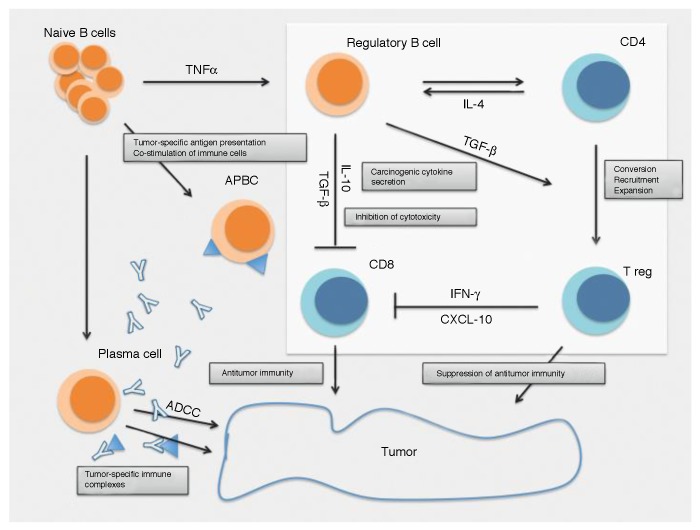Figure 1. Impact of B cells on carcinogenesis and tumor progression. B cells release cytokines, such as lymphotoxins, that mediate the androgen-independent activation of signal transducer and activator of transcription 3 (STAT3) and inhibitor of κB kinase α (IKKα), thus favoring tumor progression.29 Other cytokines such as tumor necrosis factor α (TNFα) stimulate the development of regulatory B cells (Bregs).26 While plasma cells are required for antibody-dependent cell cytotoxicity (ADCC), as they are the actual producer of tumor-specific antibodies,25 the resulting immune complexes may contribute to the establishment of a tumorigenic environment by stimulating Fcγ receptors (FcγRs).27 Furthermore, Bregs can promote oncogenesis by secreting interleukin-10 (IL-10) and transforming growth factor β (TGFβ), hence suppressing CD8+ T-cell cytotoxicity and converting/recruiting CD4+CD25+FOXP3+ regulatory T cells (Tregs).24,78 Such B cell activities normally shift the balance of tumor-specific immune response toward immunosuppression, hence sustaining tumor progression. APBC: antigen-presenting B cell.

An official website of the United States government
Here's how you know
Official websites use .gov
A
.gov website belongs to an official
government organization in the United States.
Secure .gov websites use HTTPS
A lock (
) or https:// means you've safely
connected to the .gov website. Share sensitive
information only on official, secure websites.
